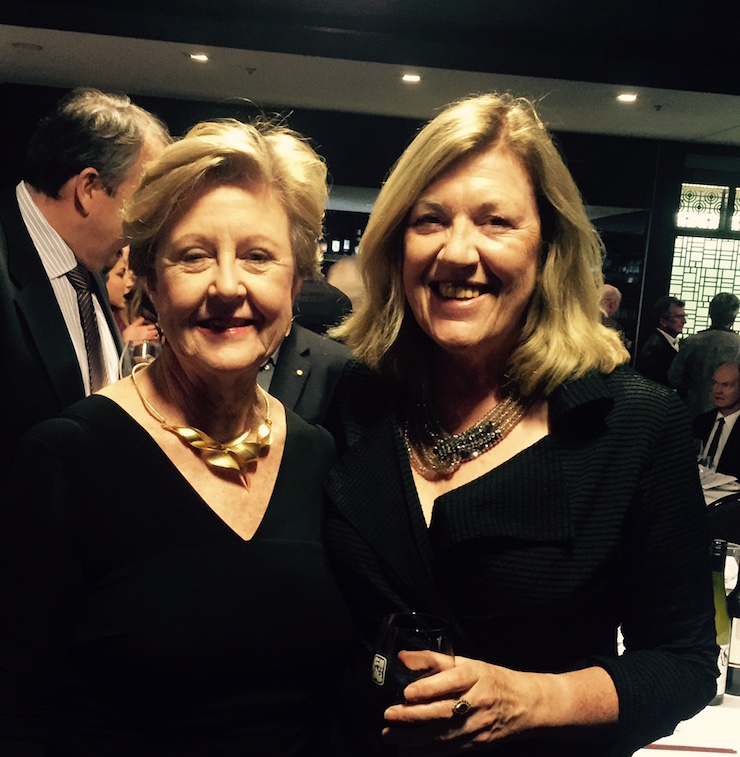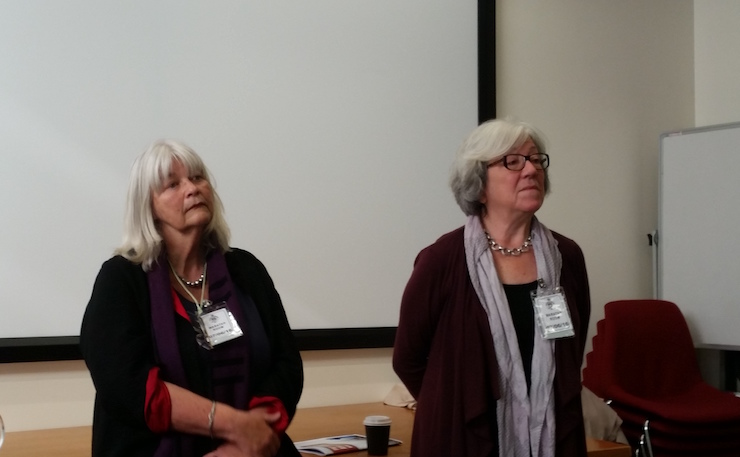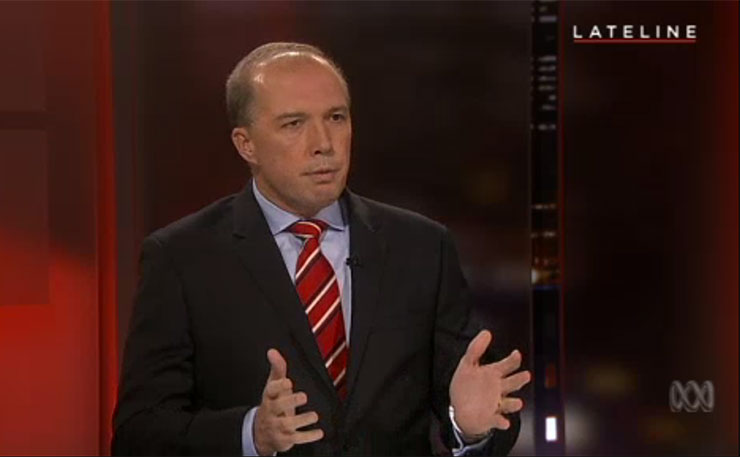The Australian government has distanced itself from Nauru’s controversial visa policies, which keep journalists and other critics out. But it seems no one told the Nauruan consulate. Max Chalmers reports.
A senior Australian barrister who applied for a visa was told by the Nauruan consulate she must first gain approval from the Australian government, a suggestion that was quickly hosed down by Australian officials and eventually resulted in an apology.
Claire O’Connor SC, who has been involved in a number of high-profile refugee cases in Australia, had planned to visit Nauru in late 2015 as part of a fact finding mission. She had intended to travel with others including former Labor Premier Carmen Lawrence, and meet women being held in the Australian backed detention centre, along with those released into the community.

Open about her reasons for wanting to visit, O’Connor had an application for a tourist visa rejected by the Nauruan consulate. She then wrote back asking what the appropriate visa category for someone wanting to speak to refugees and asylum seekers would be.
“All regional processing matters are handled directly through our Justice and Immigration Department in partnership with the Australian Immigration Department,” Trent Dabwido, a Consular Assistant, wrote to O’Connor. “I would suggest you approach the [sic] Australian Immigration first to ascertain the possibility of going to Nauru.”
“Unfortunately I do not have the contact details for DIAC but this will be the best place to start. If everything proceeds then they will handle your application with Nauru Immigration as our office only deals with tourist permits.”
“Hope this helps.”
DIAC is an acronym previously used to refer to the Australian government department now known as the Department of Immigration and Border Protection.
The email contradicts statements made by Immigration Minister Peter Dutton, who earlier this year told ABC radio host Jon Faine that “the issue [of visas] is one for the Nauru Government.”
Faine said he was keen to visit Nauru. When he pushed Dutton on helping him do so, the Minister fell back on the same point.
“Ultimately though, as you well know, without the sarcasm, as you well know, issuance of visas is an issue for the country of origin,” Dutton said.
“When somebody wants to come here to visit Australia, we make a decision about whether we issue that person with a visa and that’s a sovereign right of any nation,” he added later.
While at odds with the Nauruan consulate, Dutton’s assurances are consistent with the advice given by the Australian Department of Immigration and Border Protection after O’Connor contacted them as instructed.
“[DIBP] has no involvement in the management of travel to and from Nauru, despite the email you received from Mr Dabwido,” Cheryl-anne Moy, a First Assistant Secretary in the Australian Immigration Department, told O’Connor.
Moy referred O’Connor back to Nauruan officials, and said the Australian Department had “asked the Government of Nauru to correct Mr Dabwido’s understanding.”
Moy noted that she had asked a Nauruan government official to contact O’Connor and clarify the process.
But the confusion didn’t end there.
In a follow-up email from the consulate, Dabwido again wrote to O’Connor.
“I apologise as I may have led you to believe that approval from DIAC was a requirement before applying for the Nauru entry permit,” he wrote.
“What I meant to say that [sic] DIAC and Nauru Immigration work together on the entry of all persons associated with the camps but Nauru Immigration has the final say in the approval process not DIAC.”
That still appears to be at odds with the advice sent by Moy, who told O’Connor her Department had “no involvement”, and that “Nauru as a sovereign nation is solely responsible for approval of visas.”
O’Connor remains good-humoured about the saga, though the Nauruan consulate confirmed her application had been rejected. She said she wasn’t surprised by the first email referring her back to Australian authorities.
“Do you think Nauru itself thought of getting an $8,000 visa for journalists,” she said, referring to the infamously expensive application for journalists wishing to visit. “What I was surprised by was that [the Nauruan official]was stupid enough to put it in writing.”
Aside from the awkward contradictions, the email chain also evidences the difficulties faced by journalists, academics, lawyers, and politicians who wish to travel to Nauru to investigate the treatment of refugees passed off to the nation by Australia.
Kept out of Nauru, O’Connor went ahead and co-authored a report exploring the treatment of refugee women on the island. At its launch on Tuesday, fellow authors Wendy Bacon and Carmen Lawrence explained how they had also been kept out of the country.

The team crowd-funded $20,000 and were prepared to call bluff on the exorbitant cost of applying for a journalist’s visa, which Bacon would require. They booked flights and found local accommodation. It wasn’t enough.
Lawrence, Australia’s first female premier and a former federal minister in the Keating government, pushed Nauruan officials for a number of weeks before they simply stopped replying to her emails.
“I got one response saying there would be a timeframe for a decision,” she said. “No decision was ever made.”
Bacon also approached the consulate.
“I couldn’t even get a response of any kind,” she said on Tuesday.
O’Connor said she wanted to tell women on Nauru in person that women in Australia had not forgotten them, and that she still hopes to visit in the future.
In response to questions, the Department of Immigration and Border Protection reiterated the points made by Moy in her email to O’Connor.
“The Department of Immigration and Border Protection has no visibility or input whatsoever into the grant of visa applications for entry to Nauru,” a spokesperson said.
“Nauru, as a sovereign nation, is solely responsible for approval of visas.”
“The Department has made this point clearly in the past and these facts have not changed.”
Reader’s note: Wendy Bacon is a contributing editor at New Matilda.
Donate To New Matilda
New Matilda is a small, independent media outlet. We survive through reader contributions, and never losing a lawsuit. If you got something from this article, giving something back helps us to continue speaking truth to power. Every little bit counts.





